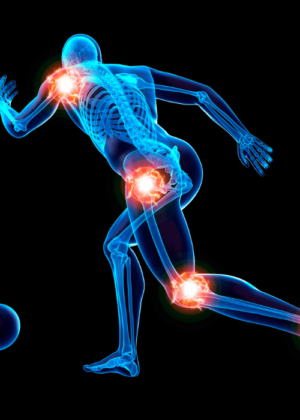Online Healthcare Analytics Graduate Certificate
Original price was: $500.00.$297.00Current price is: $297.00.

“This program transformed my approach to healthcare data. Highly recommended for anyone looking to specialize in analytics.” – Jasmine D., Graduate
Description
Course Overview
The Online Healthcare Analytics Graduate Certificate program is designed for healthcare professionals seeking to harness the power of data in making informed decisions and improving patient outcomes. This comprehensive online program equips learners with the necessary skills to analyze, interpret, and apply healthcare data in various settings. By integrating theoretical knowledge with practical applications, this course is tailored to address the unique challenges and opportunities within the healthcare industry.
Learning Outcomes
Upon completion of this certificate program, graduates will be able to:
- Understand and apply statistical and computational techniques to solve healthcare-related problems.
- Utilize predictive analytics to forecast healthcare trends and patient outcomes.
- Design and interpret healthcare experiments and studies using appropriate analytical tools.
- Communicate analytical findings effectively to both technical and non-technical stakeholders.
- Develop strategies to improve quality of care, efficiency, and patient satisfaction through data-driven insights.
Benefits
- Enhanced Decision-Making Skills: Learn to make informed decisions based on robust data analysis.
- Career Advancement: Equip yourself with in-demand analytics skills that are highly valued in the healthcare industry.
- Improved Patient Outcomes: Apply your knowledge to contribute to healthcare improvements and innovations.
Features
- Self-Paced Learning: Flexible learning that fits your schedule without the need to attend traditional classes.
- Expert Instructors: Learn from industry leaders with real-world experience in healthcare analytics.
- Practical Application: Engage in case studies, hands-on projects, and simulations that reflect actual scenarios.
- Certification: Earn a Graduate Certificate in Healthcare Analytics upon completion, enhancing your professional credibility.
Reviews
- “This program transformed my approach to healthcare data. Highly recommended for anyone looking to specialize in analytics.” – Jasmine D., Graduate
- “The modules were well-structured and the instructors were incredibly knowledgeable. It’s practical, applicable, and enlightening.” – Alan R., Graduate
Curriculum
Module 1: Introduction to Healthcare Analytics
- Lesson 1.1: The Role of Data in Healthcare
- Lesson 1.2: Overview of Healthcare Analytics Tools
Module 2: Data Management in Healthcare
- Lesson 2.1: Data Collection Techniques
- Lesson 2.2: Data Quality and Cleaning
Module 3: Statistical Foundations for Healthcare Analytics
- Lesson 3.1: Descriptive Statistics
- Lesson 3.2: Inferential Statistics
Module 4: Predictive Analytics
- Lesson 4.1: Introduction to Predictive Models
- Lesson 4.2: Regression Analysis in Healthcare
Module 5: Machine Learning in Healthcare
- Lesson 5.1: Machine Learning Overview
- Lesson 5.2: Supervised and Unsupervised Learning
Module 6: Advanced Analytics Techniques
- Lesson 6.1: Time Series Analysis
- Lesson 6.2: Survival Analysis
Module 7: Visualization of Healthcare Data
- Lesson 7.1: Principles of Data Visualization
- Lesson 7.2: Tools for Data Visualization
Module 8: Ethical Considerations in Healthcare Analytics
- Lesson 8.1: Privacy and Data Security
- Lesson 8.2: Ethical Use of Predictive Analytics
Module 9: Healthcare Quality Improvement
- Lesson 9.1: Quality Metrics and Indicators
- Lesson 9.2: Designing Improvement Initiatives
Module 10: Decision Support Systems in Healthcare
- Lesson 10.1: Basics of Clinical Decision Support
- Lesson 10.2: Implementing Decision Support Systems
Module 11 to 20: Advanced topics and specialized applications such as genomics in healthcare analytics, telehealth data analysis, operational analytics, financial analytics in healthcare, real-world data (RWD) applications, health informatics, project management in healthcare projects, innovations in healthcare technology, strategic planning using data, and leadership in healthcare analytics.
Each module consists of video lectures, reading materials, practical assignments, and quizzes to ensure a thorough understanding of the topics covered. The final module includes a capstone project where students apply their learned skills to a real-world healthcare analytics problem.
Main Themes Covered in the Program include:
- Introduction to Healthcare Analytics: This course provides a thorough introduction to the current landscape of analytics within the healthcare sector, encompassing both the scientific and practical aspects.
- Statistics for Healthcare Analytics: This course delves into detailed discussions on specific statistical topics relevant to healthcare data. It aims to equip graduate students with the skills necessary to apply traditional statistical methods to real-world healthcare data sets.
- Healthcare Data Mining and Predictive Analytics: This course introduces students to a variety of data mining concepts and algorithms, with a focus on classifiers, clustering, and association analysis, tailored to the unique characteristics of healthcare data.
- Health Data Visualization: This course emphasizes the techniques and methodologies commonly used to analyze and present health data, enhancing decision-making processes in healthcare.





